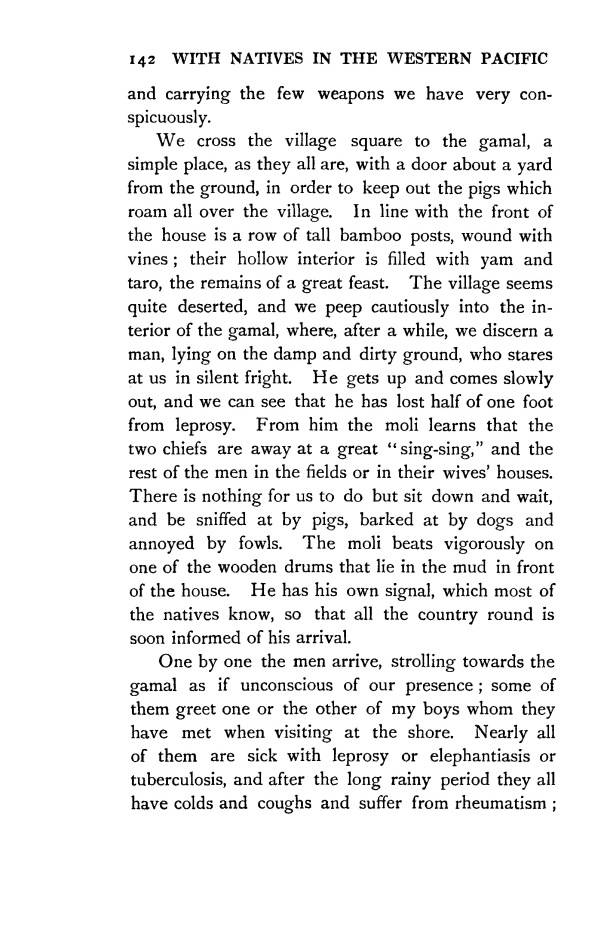|
|  [Note: this transcription was produced by an automatic OCR engine]
142 WITH NATIVES IN THE WESTERN PACIFIC
and carrying the few weapons we have very con-
spicuously.
We cross the village square to the gamal, a
simple place, as they all are, with a door about a yard
from the ground, in order to keep out the pigs which
roam all over the village. In line with the front of
the house is a row of tall bamboo posts, wound with
vines; their hollow interior is filled with yarn and
taro, the remains of a great feast. The village seems
quite deserted, and we peep cautiously into the in-
terior of the gamal, where, after a while, we discern a
man, lying on the damp and dirty ground, who stares
at us in silent fright. He gets up and comes slowly
out, and we can see that he has lost half of one foot
from leprosy. From him the moli learns that the
two chiefs are away at a great “sing-sing,” and the
rest of the men in the fields or in their wives’ houses.
There is nothing for us to do but sit down and wait,
and be sniffed at by pigs, barked at by dogs and
annoyed by fowls. The moli beats vigorously on
one of the wooden drums that lie in the mud in front
of the house. He has his own signal, which most of
the natives know, so that all the country round is
soon informed of his arrival.
One by one the men arrive, strolling towards the
gamal as if unconscious of our presence; some of
them greet one or the other of my boys whom they
have met when visiting at the shore. Nearly all
of them are sick with leprosy or elephantiasis or
tuberculosis, and after the long rainy period they all
have colds and coughs and suffer from rheumatism ;
|